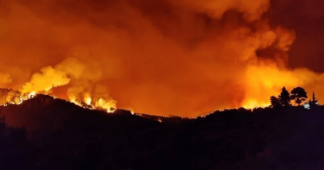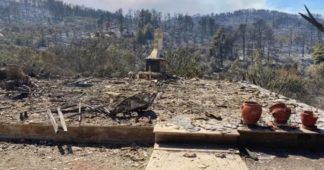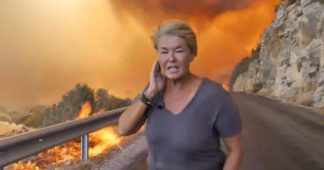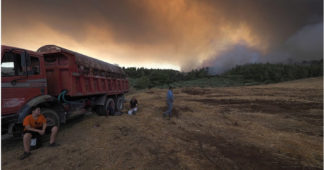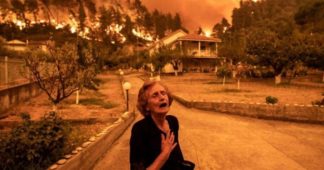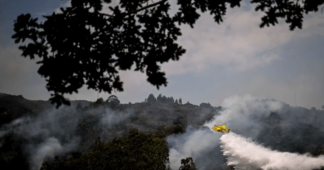By Alexander Clapp
Aug. 27, 2021
Six years after finding themselves at the forefront of Europe’s political crisis over refugees, thousands of Greeks are now refugees in their own country.
On July 21, a small wildfire began burning over the northern half of Evia, an island around 30 miles northeast of Athens. Over the next 20 days — most of which exceeded 100 degrees Fahrenheit, or 38 degrees Celsius — it swelled into a vast conflagration, sweeping from one coastline of Evia to another and racking up a staggering balance sheet of damage: 120,000 acres of burned forest, hundreds of millions of euros in economic loss, and the wholesale evacuation of dozens of villages and thousands of islanders. Two people were killed.
The devastation, though shocking, isn’t new: Swaths of Greece burn virtually every summer. This year’s destruction pales in comparison to the summer of 2007, when fires across the Peloponnese and southern Evia burned 670,000 acres of forest and farmland. And for human life, worse still was the summer of 2018, when the seaside town of Mati was razed by one of this century’s deadliest fires, killing 102 residents.
What sets this summer’s fires apart, however, is the Greek state’s explanation of why they’re happening. “The climate crisis,” as Prime Minister Kyriakos Mitsotakis said in early August, “is here.” But after decades of privatization, austerity and boundless military spending, the state is in no position to combat it. In places like Evia, Greeks have been largely left to fend for themselves.
Continue reading at www.nytimes.com
We remind our readers that publication of articles on our site does not mean that we agree with what is written. Our policy is to publish anything which we consider of interest, so as to assist our readers in forming their opinions. Sometimes we even publish articles with which we totally disagree, since we believe it is important for our readers to be informed on as wide a spectrum of views as possible.
